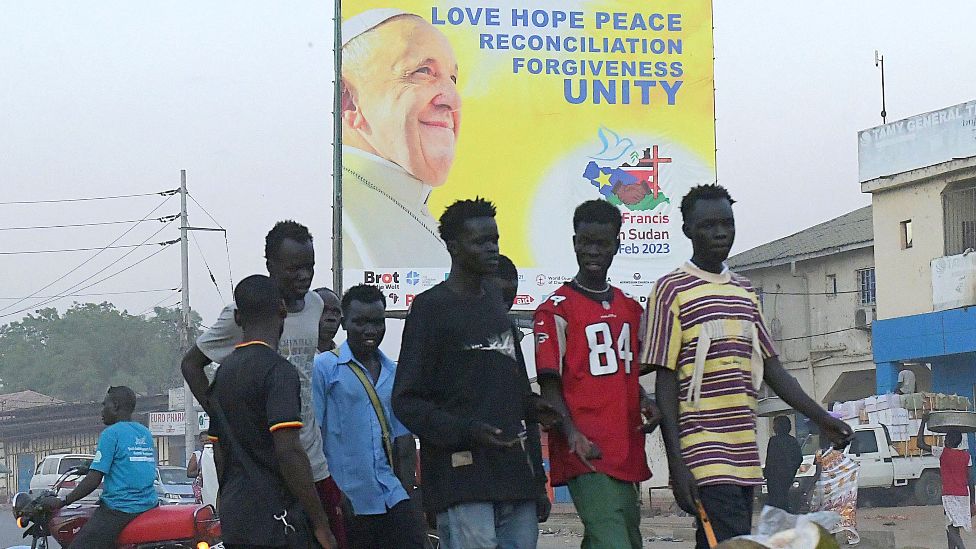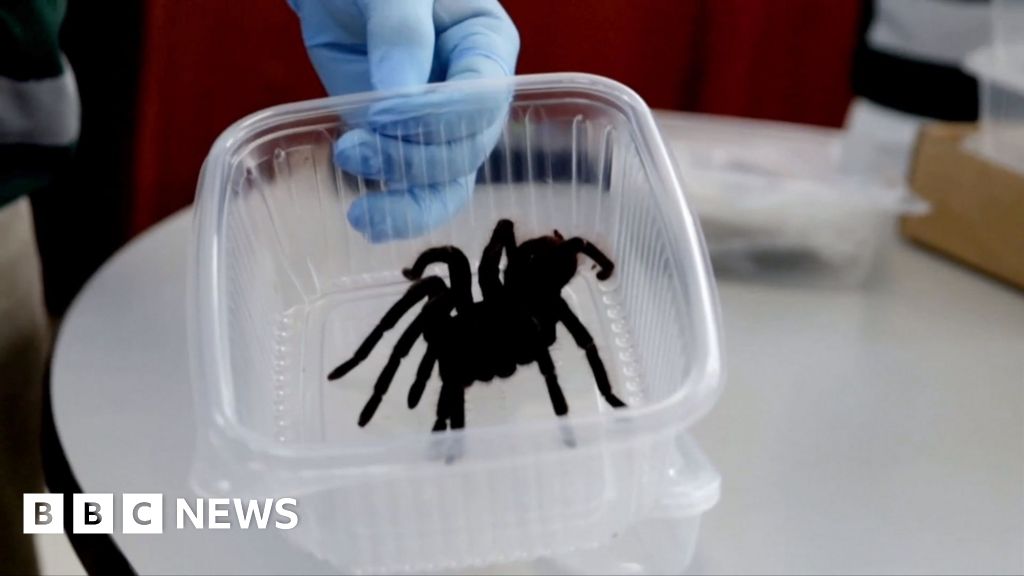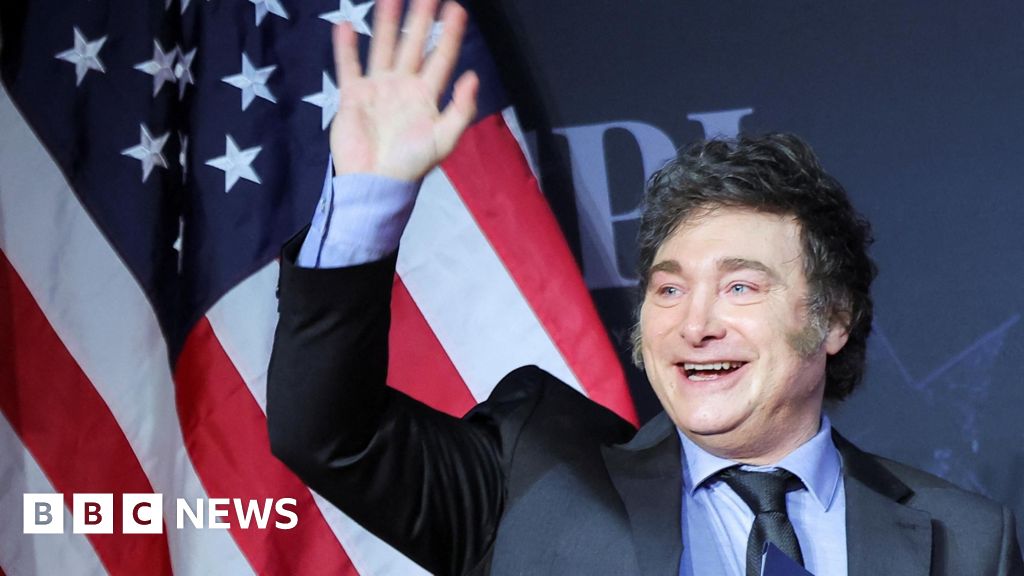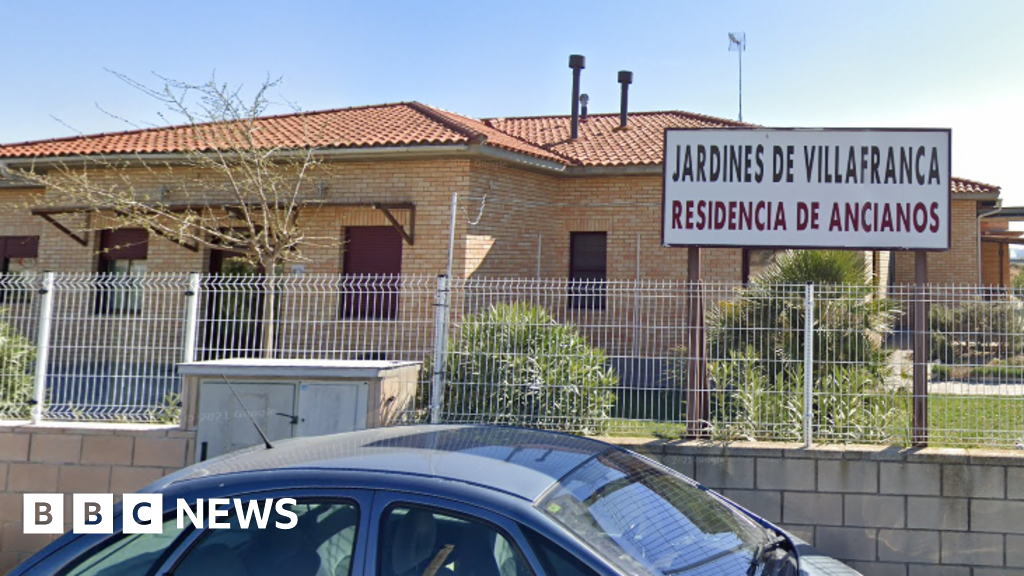ARTICLE AD BOX
 Image source, AFP
Image source, AFP
By Religion Editor Aleem Maqbool & Nichola Mandil in Juba
BBC News
There has never been a visit like it and it has been years in the planning. A Pope and an Archbishop of Canterbury make a foreign trip together for the first time in history, joined by the most senior figure in the Church of Scotland.
"This will be a historic visit. After centuries of division, leaders of three different parts of the Church are coming together in an unprecedented way," says the Archbishop of Canterbury, Justin Welby.
Their mission is to bring hope and to encourage leaders to find a lasting peace in South Sudan
"We pray that this visit will be a catalyst for the leaders of South Sudan to focus on what unites them and not what divides them for they are all loved equally in the eyes of the Lord," says Rev Iain Greenshields, Moderator of the General Assembly of the Church of Scotland.
But this trip comes at a time when the country is suffering severe political instability, its people facing crushing poverty, and many observers are viewing the outlook as bleak.
The youngest nation of the world has been ravaged by a bloody civil war since its leaders disagreed over control of the oil-rich country in 2013, just two years after its independence from Sudan.
More than 60% of the population of Sudan is estimated to be Christian, mainly belonging to Catholic, Anglican and Presbyterian traditions, though the war has been fought along ethnic and not religious lines.
The battle for control mainly raged between the supporters of President Salva Kiir, an ethnic Dinka, and supporters of the First Vice-President Riek Machar, a Nuer.
In 2019, in one of the most dramatic moments of Pope Francis' papacy, he kissed the feet of the leaders at the end of a retreat at the Vatican, at a time when it looked like a fragile peace agreement was about to collapse.
Pope Francis appealed for peace after kissing the rival leaders' feet in 2019
It was then that a commitment was made for the three Christian leaders to visit South Sudan. The pandemic, security and the Pope's ill health have prevented the trip taking place until now, but there is considerable anticipation in South Sudan at what is a sensitive time.
'A strong moral voice'
"After the 2019 retreat, our political leaders made a pledge that they will never take the country back to war," says Father James Oyet Latansio, general-secretary of the South Sudan Council of Churches.
Image source, AFP
Image caption,There is huge excitement in South Sudan over the visit of the three clerics
Fr Oyet referred to the visit as an "ecumenical pilgrimage of peace" and feels the three religious leaders are uniquely placed to influence South Sudan's politicians, most of whom are church-going Christians: Mr Kiir, a Catholic and Mr Machar, Presbyterian.
"It will be a strong voice, a moral voice calling on the leaders of South Sudan telling them: 'Please now, give the people of South Sudan the peace they deserve,'" Fr Oyet says.
In an ugly, bloody battle for control of resources that has left more than 400,000 people dead, that morality has often been devastatingly absent.
Nichola Mandil
The conflict has brought so many brutal experiences to the people, it affects the spiritual life of the people and battles their hope and their trust in God"
"We are a majority Christian country, but what we are practising is not in keeping with Christian values," says Father John Gbemboyo Mbikoyezu of the Sudan and South Sudan Catholic Bishops' Conference.
"The conflict has brought so many brutal experiences to the people, it affects the spiritual life of the people and battles their hope and their trust in God," he says.
Fr Gbemboyo says he is looking for a message of peace from the three visiting religious leaders but he, like Fr Oyet, also wants the Pope to directly tell South Sudan's leaders to focus on implementing peace for the sake of the country's people.
It is intended that there will be joyful, celebratory moments through the trip. The BBC has been told 300 choir members and 70 altar dancers have been rehearsing for months. During the papal Mass in the capital, Juba, choir master Angelo Filberto Mussa says they will perform songs composed by South Sudanese.
"I am so happy the Pope is visiting us since we have been having a lot of issues. His coming will actually change a lot," says Deborah Yar Juma, a member of the congregation of the Anglican Church of South Sudan and a student at the University of Juba.
"When someone like the Pope comes and talks about peace, there is a hope that they [South Sudan's political leaders] will implement it."
'Rampant corruption'
But there has also, for many years, been frustration in South Sudan directed at global churches that had been keen to support the creation of the state, but once that had been achieved, did not follow through with adequate support in helping build civil society and political institutions.
Image source, Nichola Mandil
Image caption,Former teacher Lino Nyaro Ungom (L) says clerics need to do more to challenge South Sudan's politicians
Frustration too in some quarters, that South Sudan's church leaders have not been strong enough advocates for peaceful co-existence among all South Sudanese.
"Churches both locally and globally failed in their moral responsibility to infuse doses of morality into political life in South Sudan," says Lino Nyaro Ungom, a former high school teacher and community activist in Juba.
"Moral decadence led to rampant corruption and conflict that led to loss of innocent lives and displacement of millions," Mr Nyaro says.
"If the churches had a strong voice, they would have challenged the politicians who are faithful in their churches and violence could have been prevented."
The Pope, Archbishop and Moderator suggest it is precisely that voice that they want to raise in South Sudan now, and that they will not hesitate in speaking frankly to South Sudan's political leaders.
But in a country where poverty and food insecurity is rife, flooding has caused so much devastation, aid has been cut from some of the very countries, including the UK, that supported its creation, and where ethnic disputes have deepened, there are many obstacles to lasting progress.
The Pope and Africa:
Watch: BBC religion editor Aleem Maqbool witnesses the Pope's visit to Kinshasa

 1 year ago
22
1 year ago
22








 English (US)
English (US)